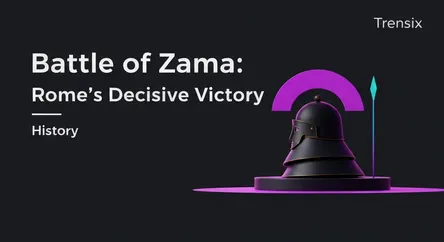History
Battle of Zama: Rome's Decisive Victory

The decisive 202 BC battle where Rome's Scipio Africanus defeated Hannibal, ending the Second Punic War and paving the way for Roman dominance.
What is it?
The Battle of Zama was the final and decisive engagement of the Second Punic War, fought in 202 BC in modern-day Tunisia. It pitted the Roman army, commanded by Scipio Africanus, against the Carthaginian forces led by the legendary general Hannibal. Despite Hannibal's tactical genius and his use of 80 war elephants, Scipio's superior cavalry and disciplined legions secured a crushing victory for Rome. This single battle concluded a conflict that had raged for 17 years.
Why is it trending?
Zama remains a subject of significant historical interest because it was a pivotal turning point in the ancient world. It represented the ultimate showdown between two of history's greatest military strategists. The battle's outcome determined which of the two great powers would control the Western Mediterranean. The Roman victory is a classic study in military strategy and adaptation, particularly Scipio's innovative tactics for countering Hannibal's feared war elephants by creating lanes in his formation for them to pass through.
How does it affect people?
The battle's aftermath reshaped Western civilization. For Carthage, the defeat was catastrophic; it was forced to surrender its navy, give up its overseas territories like Spain, and pay a massive indemnity to Rome. It effectively ended Carthage's status as a major power. For Rome, the victory was transformative. It secured its survival and marked its ascent from a regional power to the dominant force in the Mediterranean. This victory set the stage for the expansion of the Roman Empire, which profoundly influenced law, language, and culture for centuries.